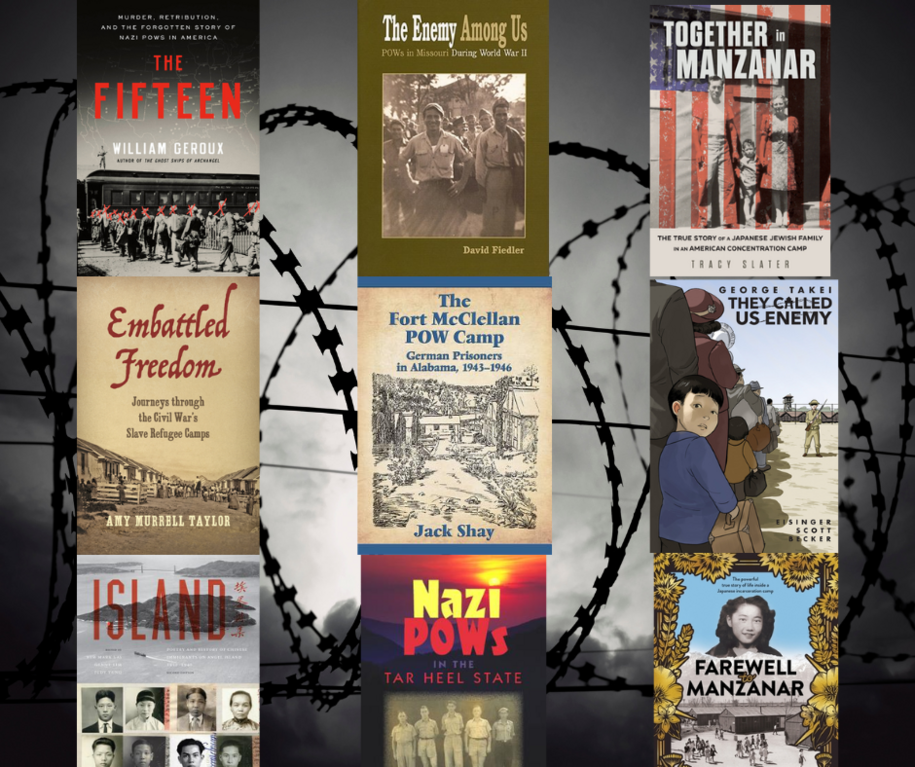Lifestyle
New Concentration Camps Spark Outrage Over Treatment of Detainees

A controversial new facility in Florida has reignited discussions about the treatment of detainees in the United States. The facility, constructed in the swamplands under the direction of Governor Ron DeSantis, is part of an initiative supported by increased funding for the Immigration and Customs Enforcement (ICE) in the latest budget. This site has been described by some as a concentration camp, a term that evokes painful memories of past injustices in the nation’s history.
Access to the facility has been largely restricted, though some members of Congress have recently been permitted limited visits. Rep. Maxwell Alexander Frost recounted his experience after spending two hours inside, describing “horrible conditions and cages.” He noted that detainees have access to just three toilets for a group of 32 people, and their drinking water comes from a spigot located on top of a toilet. “It’s gross and disgusting, and this is where people are being held,” he stated.
In a similar vein, Rep. Debby Wasserman Schultz highlighted stark disparities in food quality between staff and detainees. While employees reportedly enjoy substantial meals, detainees receive “small, gray turkey and cheese sandwiches with apple and chips.” She drew parallels between the current situation and the internment of Japanese Americans during World War II, emphasizing the lack of due process and humane treatment. “The immoral treatment of human beings on this Florida site unmistakably echoes a similarly shameful American chapter,” she said.
This situation brings to light the historical context of concentration camps in the United States. The internment of approximately 120,000 Japanese Americans during World War II remains one of the most notable instances. Many were American citizens who lost their homes and businesses and lived for years under harsh conditions.
A recent publication, Together in Manzanar: The True Story of a Japanese Jewish Family in an American Concentration Camp by Tracy Slater, recounts the struggles of Elaine Yoneda, whose family faced separation and uncertainty when her husband was taken to an internment camp. The book explores the intersection of race and identity, shedding light on the experiences of families affected by these policies.
Similarly, George Takei, known for his role in “Star Trek,” has shared his own childhood experiences in internment camps through the graphic novel They Called Us Enemy, co-written with Justin Eisinger and Steven Scott. This narrative, along with others like Farewell to Manzanar and The Literature of Japanese American Incarceration, continues to resonate with contemporary audiences and highlights the ongoing relevance of these historical events.
While the focus has been on the treatment of Japanese Americans, it is important to recognize that other groups faced similar injustices. During World War II, approximately 400,000 German prisoners of war were held in the United States. A recent book, The Fifteen: Murder, Retribution, and the Forgotten Story of Nazi POWs in America by William Geroux, details their experiences, including the challenges of maintaining control and order within the camps. The disparity in treatment between German POWs and Japanese American detainees has raised difficult questions about racism and the application of justice.
The unequal treatment of different ethnic groups in detention settings goes back further in American history. Works like Driven Out: The Forgotten War against Chinese Americans by Jean Pfaelzer document the systemic violence and discrimination faced by Chinese immigrants during the late 19th century.
As the nation grapples with contemporary issues of immigration and detention, the stories of those who came before serve as a stark reminder of the potential for abuse within such systems. The current developments in Florida are a call to reflect on the past and advocate for humane treatment for all individuals, regardless of their background.
In light of these events, Tim Weiner, a Pulitzer Prize-winning journalist, has released a new book titled The Mission: The CIA in the 21st Century, which discusses the evolution of American intelligence in the context of global affairs. His insights into the implications of current policies may further inform the ongoing debate about human rights and national security.
As new narratives continue to emerge, it is crucial for society to acknowledge the lessons of history while advocating for justice and dignity in the treatment of all individuals within the United States. The parallels between past and present serve as a powerful reminder of the importance of vigilance in protecting human rights.
-

 Science1 month ago
Science1 month agoNostradamus’ 2026 Predictions: Star Death and Dark Events Loom
-

 Technology2 months ago
Technology2 months agoOpenAI to Implement Age Verification for ChatGPT by December 2025
-

 Technology7 months ago
Technology7 months agoDiscover the Top 10 Calorie Counting Apps of 2025
-

 Health5 months ago
Health5 months agoBella Hadid Shares Health Update After Treatment for Lyme Disease
-

 Health5 months ago
Health5 months agoAnalysts Project Stronger Growth for Apple’s iPhone 17 Lineup
-

 Technology5 months ago
Technology5 months agoElectric Moto Influencer Surronster Arrested in Tijuana
-

 Science2 months ago
Science2 months agoBreakthroughs and Challenges Await Science in 2026
-

 Education5 months ago
Education5 months agoHarvard Secures Court Victory Over Federal Funding Cuts
-

 Health5 months ago
Health5 months agoErin Bates Shares Recovery Update Following Sepsis Complications
-

 Science4 months ago
Science4 months agoStarship V3 Set for 2026 Launch After Successful Final Test of Version 2
-

 Technology7 months ago
Technology7 months agoMeta Initiates $60B AI Data Center Expansion, Starting in Ohio
-

 Technology6 months ago
Technology6 months agoDiscover How to Reverse Image Search Using ChatGPT Effortlessly





















